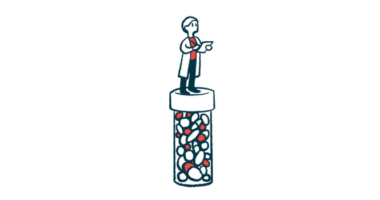Pharvaris Seeks Trial Patients to Test Its Oral Therapy for HAE Attacks

Pharvaris is actively recruiting people with hereditary angioedema (HAE) types 1 or 2 for two clinical trials testing its investigational oral therapy PHVS416 as either an on-demand or prophylactic (preventive) treatment for swelling attacks.
Results from both studies are expected next year.
The Phase 2 trial RAPIDe-1 (NCT04618211), which started earlier this year, is testing PHVS416 as an on-demand treatment for swelling attacks. In this two-part trial, participants are first given a dose of the therapy when they are not having a swelling attack, to monitor safety and pharmacological properties. They are then given PHVS416 or a placebo to treat swelling attacks at home.
RAPIDe-1 is currently recruiting participants at multiple locations in the U.S., Canada, Europe, and Israel.
The second trial, a Phase 2 study called CHAPTER-1 (NCT05047185), recently began. This trial seeks to enroll about 30 adults with HAE, ages 18 to 75, who are having regular swelling attacks — at least three attacks in the three months prior to enrolling, or two attacks in a two-month screening period at the start of the study.
CHAPTER-1 is currently recruiting patients at several locations in the U.S., and is expected to enroll participants in Europe, Canada, and Israel.
Participants in the study will be randomly assigned to a low or high dose of PHVS416, or a placebo, taken for 12 weeks (about three months). The study’s main goal is to determine the effect of treatment on the number of HAE swelling attacks.
“We expect to report top-line data, including efficacy and safety, for both studies in 2022,” Berndt Modig, co-founder and CEO of Pharvaris, said in a press release.
HAE is characterized by abnormally high levels of a signaling molecule called bradykinin, which triggers swelling by binding to specific protein receptors. The active ingredient in PHVS416, called PHA121, is a small molecule that blocks one of these protein receptors called bradykinin B2 receptor.
Pharvaris is also developing an extended-release formulation of PHA121, called PHVS719, as a potential prophylactic therapy for HAE. The company is planning to launch a small Phase 1 trial soon to evaluate PHVS719’s pharmacokinetic profile (how it moves through the body).
“This month, in the PHVS719 program for HAE prophylaxis we also expect to initiate dosing in a Phase 1 pharmacokinetic study designed to assess the bioavailability of extended-release formulation,” Modig said.







